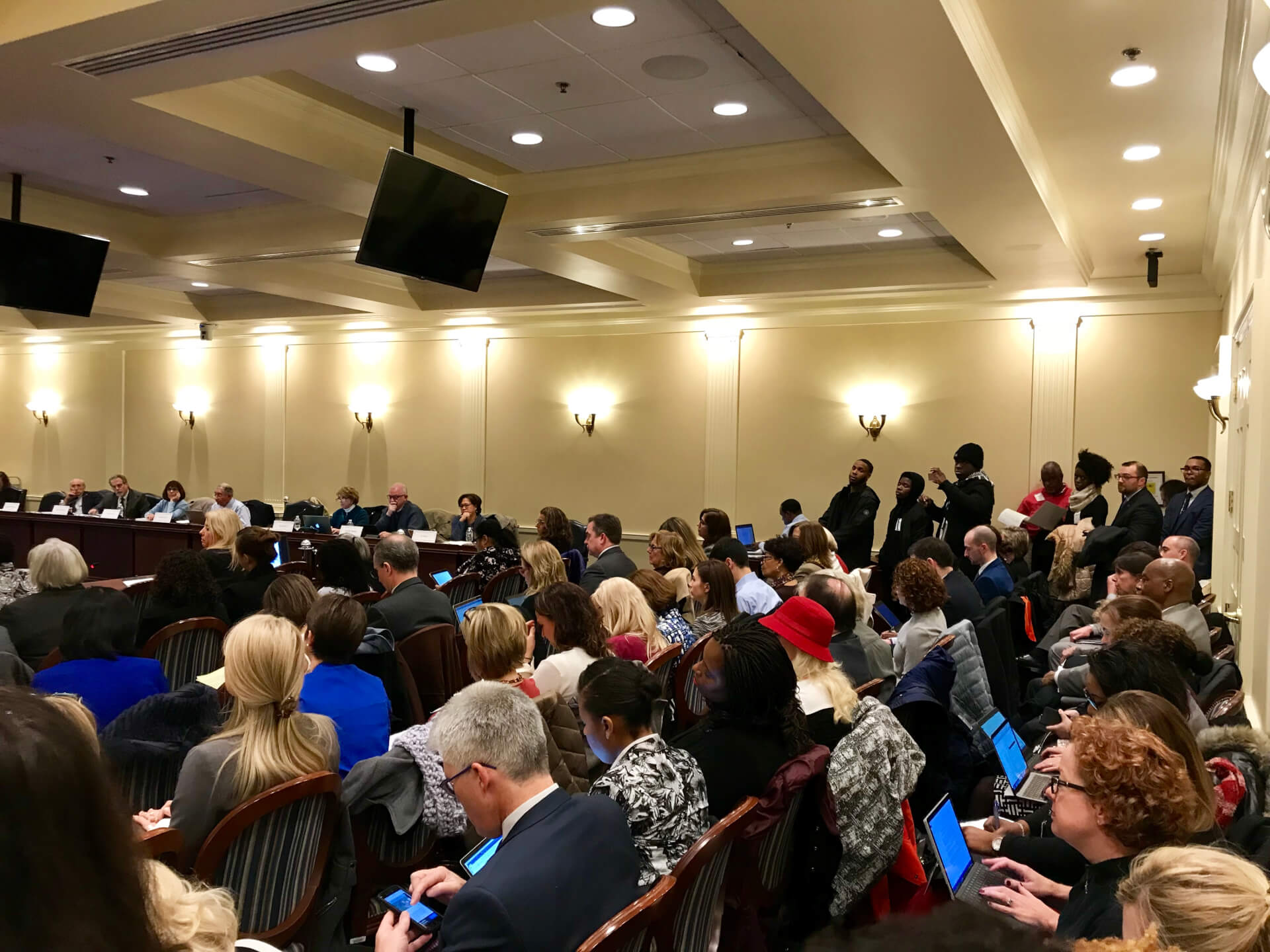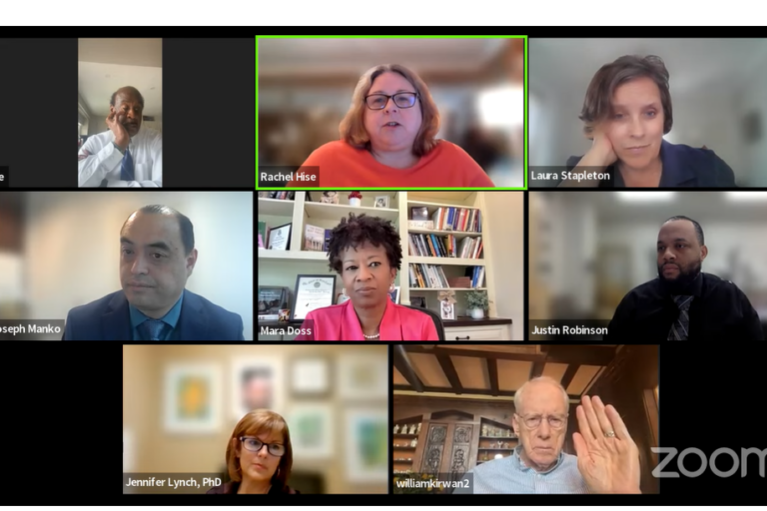List of Requests for Kirwan Commission Is Long

As if the Commission for Innovation and Excellence in Education didn’t already have a hefty task, things got heavier Thursday night.
During a marathon session, the commission was peppered with request after request from public officials, communities, organizations and parents wanting changes to the panel’s expansive draft regulations.
Around the halfway point, a pair of elementary school students stole the show. Kensington and Bella, two students who have dyslexia, encouraged the commission to include recommendations for earlier screening, which, with a dash of humor and charm, the girls said would have eased their own academic careers.
Perhaps with earlier screening, Bella said she might not be at the commission asking for early screening so kids “don’t end up feeling angry and stressed at the age of 9. We are not supposed to be stressed at this age ― only parents are supposed to because they have to work.” The girls received a round of applause after their testimony.
Parents of children with disabilities also asked the commission to consider protecting the funding streams and requiring annual increases for special education programs.
Tutors asked the commission to consider a lower student-to-tutor ratio for struggling schools.
Mark Procopio, executive director of Free State Justice, asked the board to add recommendations to encourage LGBT cultural competency training among teachers and establish consistent statewide policies to protect and support LGBT youth.
Arts educators lobbied for a base level of school funding that includes access to high-quality arts education for all students in the state.
Agricultural educators applauded a focus on career education programs, but stressed the need for commensurate funding and suggested that middle school students also be exposed to career options before they make decisions on courses in high school.
The Coalition of Black Leaders in Education said historically black colleges and universities should be prioritized for funding to create centers of excellence in teaching to recruit a more diverse workforce and that teacher and principal evaluations should include proficiency in culturally relevant coursework.
Several speakers warned of the downfalls of a one-size-fits-all approach to reforms, given the state’s diversity in school districts.
Representatives from Montgomery, Calvert and Talbot counties stressed that local control of schools and school policies should remain in place. The Maryland Association of Boards of Education, which submitted eight pages of testimony, tried to strike a balance. The organization said it understood the risks in failing to achieve consensus for the recommendations, so pledged support for the commission’s final report “to the maximum extent possible within the bounds of advocating vigorously for the quintessentially American system of locally governed school systems accountable to local communities for the teaching and learning of each community’s most valuable and cherished asset, our children and their futures.”
Linda Chinnia, vice-chair of the Baltimore City Board of School Commissioners, noted that had the state’s current funding formula not faced a cap in 2008, city schools would have received an additional $290 million more in state funding in the last decade. Chinnia commended the commission for considering a “concentration of poverty” weight that would deliver extra resources to schools with a certain percentage of low-income students.
Justin Hartings, the president of the Maryland State Board of Education, asked the commission to remove a recommendation to establish an independent oversight board that would coordinate, monitor, and evaluate implementation of the commission’s plan.
The oversight board would have the authority to require other state agencies and local school systems to respond to requests for information, changes to policies or implementation plans, and recommendations to withhold funding. Those are all tasks the State Board of Education is already equipped to handle, Hartings said.
Frederick County Executive Jan Gardner (D) submitted testimony that included concern about a recommendation to bring teacher salaries to $60,000 a year across the state, a goal “we are not even close to.” The financial strain of increased teacher pay could be additionally compounded by an expectation of increased salaries from other public employees, she added.
The Maryland Association of Counties expressed some concern with the potential cost to counties if the recommendations are approved; the $60,000 teacher salary proposal alone could cost as much as $1.3 billion by 2019, according to estimates used by the commission. MACo also stressed that counties need more information about possible changes to state education funding formulas.
“Counties continue to be concerned with the lack of specificity regarding the pattern and role of county funding required to effectuate the Commission’s recommendations,” the organization’s policy analyst wrote in submitted testimony.
Shannen Coleman Siciliano, co-executive director of Strong Schools Maryland, one of several organizations that advocated for policies to address racial equity, also stressed the need for more detailed information ― and soon.
“We all need to know the bottom line. Without final numbers, important partners, ready to advocate for children in Maryland, remain hesitant to engage due to the lack of final details,” Coleman Siciliano said.
William “Brit” Kirwan, chairman of the commission, piped in: “Just to reassure you, we do plan to have a final report.”
The commission discussed some variables in the state’s funding formulas earlier in the day on Thursday. The topic is expected to be the centerpiece at the commission’s meeting next week in Annapolis.




 Creative Commons Attribution
Creative Commons Attribution